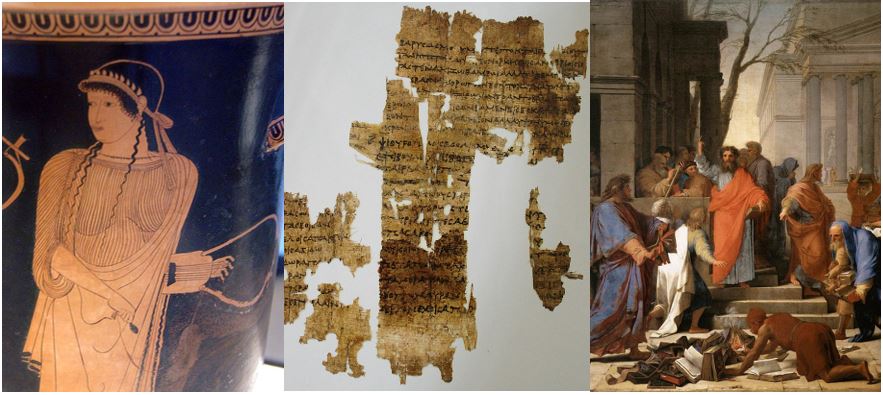The Enduring Legacy of Sappho: Myths and Realities
Did Christians Really Burn Sappho's Poetry? - Tales of Times Forgotten 🔗

Sappho of Lesbos, an esteemed Greek lyric poet from the 7th century BCE, is renowned for her work, though only a small fraction has survived, primarily due to the challenges of her Aeolic dialect and changing literary tastes over time. While the popular belief is that early Christians burned her poetry due to its homoerotic themes, evidence for such actions is lacking. In fact, many ancient and obscene works were preserved by Christians, indicating that Sappho's poetry was not specifically targeted for destruction. Instead, her writings faced natural decline due to dialect difficulties and shifts in literary preference, making her survival rate notably better than many of her contemporaries.
What is the main reason for the loss of Sappho's poetry?
The primary reason for the loss is the difficulty of her Aeolic dialect, which became obscure as it fell out of use. Additionally, changing literary preferences during late antiquity led to less copying of her works.
Did early Christians burn Sappho's poetry?
There is no evidence to support the claim that early Christians burned Sappho's poetry. Most accounts of such actions originate from Renaissance scholars, and many other obscene texts were preserved by Christians.
Why is Sappho's poetry considered significant despite its limited survival?
Sappho's poetry is significant because she is one of the best-preserved archaic Greek lyric poets, with nearly seven hundred lines surviving, including complete poems, which is exceptional compared to most of her contemporaries.